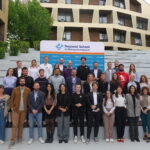On Tuesday, October 6th – a few months later than usual, due to the global pandemic – “progress reports” of candidate countries and potential candidates for membership in the European Union (EU) were published. The document that was once eagerly awaited, and which sent a strong message to the authorities in Belgrade last year, is no longer – it seems – such a “lever of influence”, at least not in the eyes of the local authorities, which hoped that by focusing on the formation of the Government, they could push it out of the picture. However, it points to those trends – and phenomena – that “only the blind would not see”, the truth in a vocabulary that is “insufficiently sharp” for some, and “shallow” for others. One thing is certain: it is a fantastic overview of the most important political developments and reform processes in the country and useful counter-argument for claims that “everything is allways the same” and that “nothing changes”. Unfortunately, our problem is that, often, it changes “downwards”. Like last year, in our text we will focus on the country’s international obligations, which are viewed in the context of regional cooperation, and the harmonization of foreign policy with EU’s foreign policy and, of course, Chapter 35 (Kosovo).
The report, which “for the second year in a row… is no longer a technical matter” (Katarina Golubović, YUCOM), gives an objective picture of the society in Serbia, as divided, with political freedoms in decline. Declarative, Serbia remains committed to EU membership, but at the same time continues to send “double messages” while a kind of “waiting game” lasts (Srdjan Majstorovic, Center for European Policies). Progress will also depend on whether we accept the new methodology of the European Commission, but also on the situation in the region – if Albania and North Macedonia make progress, it could influence Serbia to “wake up”.
Vladimir Medjak, vice president of the European Movement in Serbia, points out that one of the basic values of the EU is pluralism – which the current composition of the National Assembly does not correspond to. The vocabulary of the report is clear in this part: “the supervisory function of the Parliament is formal”, “a incendiary vocabulary is used in the Assembly”. We managed to impose two more criteria on “ourselves”: “monitoring the functioning of democratic institutions” and how to “communicate” about the EU.
In reviewing our international obligations, we will start from what the Commission has praised. First of all, through what it committed itself to, when it comes to the budget of the Regional Youth Cooperation Office (RYCO), Serbia donated 420,000 euros. Then, that in September 2019, the headquarter of the Transport Community was opened in Belgrade. The so-called green corridors are especially praised, in which establishment the Regional Cooperation Council contributed significantly, and whose goal was to accelerate truck traffic during the COVID-19 epidemic.
The attitude towards the “mini Schengen” initiative is interesting – and understandable, from the EU’s point of view. The declarations from the summits in Novi Sad, Ohrid and Tirana are taken as proof of Belgrade’s commitment, or desire for greater “ownership” over the processes of regional cooperation. However, it is important for the Commission that the whole “Balkans’ Six” take part in these new initiatives, and that it is based on the commitments made under CEFTA, the Regional Economic Area (REA) and the Transport Community Agreement. To put it simply, the “four freedoms” regime, if achieved, would rest on the basis set by the EU.
There is a somewhat vague remark that “Serbia should play a constructive role in building the single market” – the impression is that Serbia insists on it the most, precisely through the “mini Schengen” (in which it was joined by North Macedonia and Albania, even President Pendaroski at GLOBSEC in Bratislava said “this is an authentic idea of our states”). We do not know whether the Commission meant on impossibility of importing products from Kosovo. Whatever the reason, it must keep pace with the action plan for the establishment of a regional economic area (the formulation “has to be” is used).
Truth be told, regional cooperation – under pressure by COVID-19, like everything else – did not bring about something as substantial in 2020 as, for example, the regional roaming agreement from April 2019 was. What was announced in Poznan in the form of declarations, is yet to be implemented – we refer to the Declaration on Clean Energy Transition; ie the Declaration on Roma Integration.
Next come the questions that are most present in our public. Despite all doubts, the Commission sees Serbia “supporting Bosnia and Herzegovina’s territorial integrity”. The insistence on “special relations” is stated, but it is also said that it is “as envisaged by the Dayton Agreement”. There are no references to the presence of Belgrade officials at the celebration of the Day of Republika Srpska, as something that “caused controversy” back in 2019. The Commission, therefore, did not deal with incendiary statements that come “from here” or “from there” every now and then.
The cooperation achieved in resolving the issue of missing persons is considered insufficient – it is said that Belgrade and Pristina met only once in that context, and that there were no meetings with Croatia since May last year, after the fate of 51 people was resolved in 2019. Serbia is expected to speed up the exchange of information with its neighbors, and grant “comprehensive support” to families. It is indicated that a draft Law is in preparation. It seems that there was more cooperation from 2018 to 2019, but solving the fate of the missing persons is a matter of elementary humanity and it is difficult to understand why there is no cooperation.
As always, bilateral relations were assessed – with Albania and North Macedonia as “good” (better than 2019, when they were assessed as “stable”), with Bosnia and Herzegovina as “stable” (unlike in 2019, when they were considered “good”) and with Montenegro – marred with tensions, especially in the context of the attempt to adopt the Law on Freedom of Religion. The trend, according to which relations with so-called “old neighbors” (Hungary, Romania, Bulgaria) are good, while with the so-called “new” (countries that emerged from the break-up of the former Yugoslavia) complex and often bad, continues; as well as the trend of deepening cooperation with Turkey (construction of the Belgrade-Sarajevo highway; gas pipeline “Turkish Stream”; trilateral meetings.)
When it comes to the dialogue between Belgrade and Pristina, or the normalization of relations between Serbia and Kosovo, the absence of any reference to the process under the auspices of the United States (USA), which culminated in the signing of the “Agreement on Economic Normalization” on September 4, is noticeable. The report underlines the abolition of tariffs, which enabled the resumption of the dialogue; and the appointment of Miroslav Lajčak as EU’s Special Representative for the Belgrade – Pristina Dialogue and other Western Balkan regional issues. As is well known, there has been no progress on the issue of The Community of Serb Municipalities, i.e. the implementation of the Agreement on Principles (on which it should have been established) from August 2015. Also, there has been no progress yet, ie where the implementation of technical and other agreements has been assessed as “partially implemented”: regional representation; cadastre; recognition of diplomas; freedom of movement (problem with license plates and issuance of supporting documents which violates the agreement). The refusal of the Serbian side to continue with the establishment of three integrated crossing points (Jarinje, Mucibabe, Konculj) led to the suspension of EU funds in July 2018. The agreements that are generally respected are the one on telecommunications, the integration of the judiciary (here Pristina is expected to meet its obligations), and the requests for legal assistance are being answered. The commission takes care of the formulations it uses, so it says that Serbia “showed restraint” by not reacting to taxes; but also, that it must do more to “create an atmosphere conducive to dialogue.” These are the same formulations from last year.
A few words about Chapter 31, which, considering everything that has happened in the past months, and not only in the context of the pandemic, deserves an article of its own. We have accelerated cooperation with the United States; difficulties continue around Belarus; our foreign policy positioning in the context of a pandemic, all the way to a very unpleasant situation with the Nagorno-Karabakh conflict where weapons produced in our factories are used by both sides.
The harmonization of our foreign policy with the EU reached 60% in 2019. We have not joined the EU’s restrictive measures against Russia, Venezuela, Myanmar and Iran; as well as the declarations (seven in total) of the High Representative for Foreign Affairs and Security Policy (HR) on Hong Kong. However, it is stated that it is in line with the declaration of HR on the recent presidential elections in Belarus.
The announcement of withdrawal from all military exercises was mentioned somehow along the way. Our participation in EU military and civilian missions has always been highlighted as a testament to our commitment to future membership; now there is a risk that we are taking that argument out of our own hands. Commission also notes the increase of the defense budget by almost 30% in relation to 2019, as well as cooperation with Russia and China. Everything is there, but Brussels has refrained from making any conclusions, assessments, or condemnations.
The Commission’s messages are almost identical to those of civil society organizations. The government should refrain from applying restrictive measures, such as a “list” of more than fifty organizations from which The Administration for the Prevention of Money Laundering (APML) recently requested financial data, in the context of the fight against terrorism (!); the Assembly must be more involved, regardless of the fact that it will suffer from a lack of legitimacy; and finally, to renew the consensus in the society for EU membership, which, without the pro-European opposition in parliament, will be hell of a difficult task.
The article is a summary of the presentation at the “Public Reading of the Progress Report”, which was organized by the Center for Democracy Foundation and the European Western Balkans portal on Friday, October 9th.
It was originally published in Novi magazin no. 494, October 15th, 2020.
Photo: YouTube screenshot













